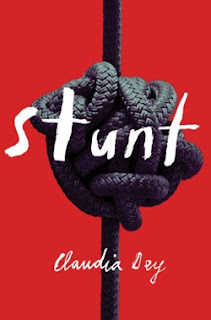
One quick preface to this book. It is a cultural transmission from a different age. Back when it was written (1912 originally), there was a steadfast belief that the white man had been scientifically been proven a superior genus to any other "genus". This was based in bullshit science like craniometry (measuring skulls) and other "scientific" methods. Anthropology was widely influenced, and many people "discovered" the validity of what was being "proven" in the lab. The whole thing was a giant sham, obviously, to try to scientifically prove the natural, born right of the English nobleman over all other species on earth. In fact, the point of the entire book is to prove that point. Tarzan would have been more successful than any other creature anywhere because he came from a long line of whitey white faces with a serious attitude problem. Le sigh, we can't erase the past but we can recognize the bogus-ness of things like scientific racism.
That being said, Tarzan was a very exciting, very fast paced novel that was enormously entertaining. The book itself is so different from any of the movie versions I've ever seen. It starts with mutiny. His parents are forced onto an island after the ship that they are on undergoes a change in power structure. After surviving for several years, his parents finally fall prey to the animals on the island and little baby Lord Greystoke undergoes a change of parentage. Kala, the beautiful, strong limbed lady gorilla swaps her dead baby for the living one left in the little shack on the beach. And so Tarzan grows up among the apes.
First man Tarzan sees? A native african tribesman. He steals their weapons and kills their hunters. They worship him as a forest God. Eventually, after a gauntlet of Lion and Gorilla fights, Tarzan sets his eyes on the now stranded Jane Porter. Her little party includes her father, Archimedes Q. Porter, Mr. Philander, Esmerelda (her servant) and Clayton, the now Lord Greystoke. Tarzan protects this little motley crew and eventually saves Jane from the clutches of a rival Ape. They fall in love, but it is not meant to be (now anyway. Apparently there are like 40 Tarzan books...). Jane sails away while Tarzan is protecting a wounded French soldier. In return for saving his life, the Frenchman teaches him to speak and they travel to Paris, and eventually America, in search of the lovely Jane. When they find her, she is betrothed to another. Some good old fashioned rough and tumble leaves Jane not betrothed to the evil money lender, but instead Clayton, the English born Lord Greystoke. Little do they know that Tarzan is infact the heir to that title.
And so ends the first book. All in all it was pretty straight forward. It was definitely thrilling. I could gobble books like this up all day. Tarzan is a perfect mix of adventure, romance and revenge. It's not the most witty or inspired plot, but I can definitely see why it has become such a widely transmitted cultural myth. It strikes a balance between identity, self- love and DYI. I wonder if I can get my hands on some more of the installations and see if I can't see how the saga ends :)
Ta for now,
ET







